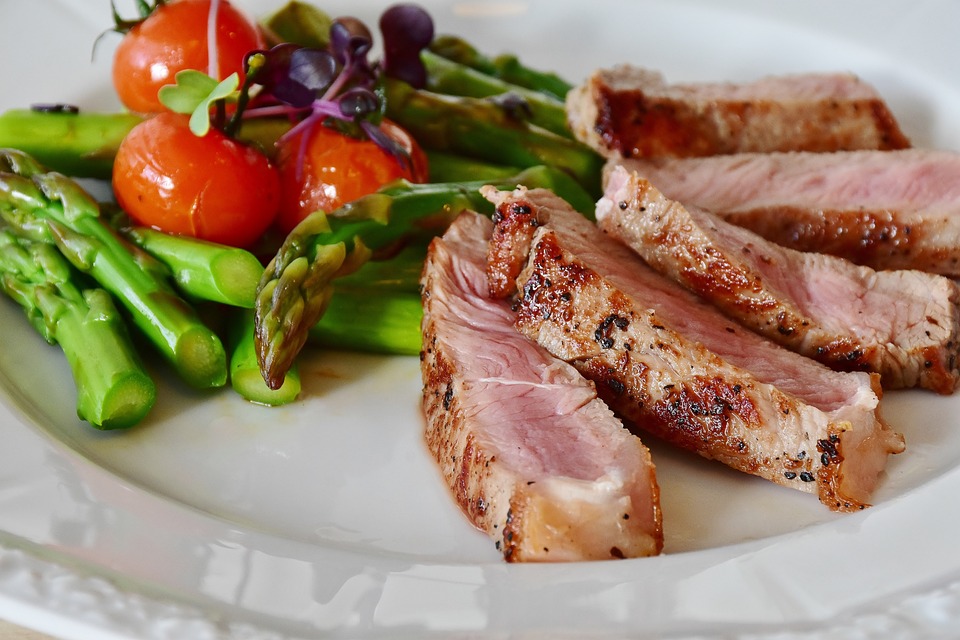Introduction
Gastric sleeve surgery is a weight loss procedure that involves the removal of a portion of the stomach, creating a small pouch that limits the amount of food that can be consumed at a time. This surgery is an effective method for weight loss, but it requires a change in lifestyle and eating habits. A gastric sleeve meal plan is an essential tool for those who have undergone this surgery to help them achieve their weight loss goals. In this article, we will discuss the importance of having a gastric sleeve meal plan and provide some examples of meals that can be included in this plan.
The Importance of a Gastric Sleeve Meal Plan
Following gastric sleeve surgery, the stomach is reduced in size, which means that the amount of food that can be eaten at one time is limited. This means that every meal needs to be carefully planned to ensure that the body is receiving the necessary nutrients to support the healing process and maintain optimal health.
A gastric sleeve meal plan can help patients to achieve their weight loss goals by providing them with a clear outline of what to eat and when to eat it. This plan can also help patients to establish healthy eating habits and avoid overeating, which can lead to weight gain.
Meal Planning Tips for Gastric Sleeve Patients
When planning meals for gastric sleeve patients, it is important to focus on foods that are high in protein, low in fat, and low in sugar. Patients should also avoid drinking liquids with meals, as this can cause the stomach to stretch and reduce the effectiveness of the surgery.
Here are some tips for planning meals for gastric sleeve patients:
1. Focus on protein-rich foods: Include lean proteins such as chicken, turkey, fish, and tofu in every meal. These foods will help to keep patients feeling full for longer and support muscle growth and repair.
2. Choose low-fat foods: Avoid foods that are high in fat and empty calories, such as fast food, fried foods, and processed snacks. Instead, focus on whole foods that are low in fat, such as fruits, vegetables, and whole grains.
3. Incorporate fiber-rich foods: Fiber is an essential nutrient that supports digestive health and helps to keep patients feeling full. Include fiber-rich foods such as beans, lentils, and vegetables in every meal.
4. Avoid sugary foods: Sugary foods can cause blood sugar spikes and lead to weight gain. Instead, choose foods that are naturally sweet, such as fruits, or opt for sugar-free alternatives.
5. Eat small, frequent meals: Patients should aim to eat 4-6 small meals per day, rather than 3 large meals. This will help to keep the stomach full and prevent overeating.
Example Gastric Sleeve Meal Plan
Here is an example of a gastric sleeve meal plan for one day:
Breakfast:
– 1 egg scrambled with spinach and mushrooms
– 1 slice of whole-grain toast
– 1/2 cup of fresh berries
Snack:
– 1/4 cup of almonds
– 1 small apple
Lunch:
– Grilled chicken breast
– 1 cup of roasted vegetables (such as zucchini, bell peppers, and onions)
– 1/2 cup of brown rice
Snack:
– 1 small container of Greek yogurt
– 1/2 cup of fresh berries
Dinner:
– Grilled salmon
– 1 cup of steamed broccoli
– 1/2 cup of quinoa
Snack:
– 1/4 cup of hummus
– 1 cup of raw vegetables (such as carrots, cucumbers, and celery)
The Benefits of a Gastric Sleeve Meal Plan
Following a gastric sleeve meal plan can provide patients with a number of benefits, including:
1. Weight loss: By following a meal plan that is high in protein and low in fat and sugar, patients can achieve their weight loss goals and maintain a healthy weight.
2. Nutrient-dense meals: A gastric sleeve meal plan can provide patients with a balanced diet that is rich in essential nutrients, such as protein, fiber, and vitamins.
3. Healthy eating habits: By establishing healthy eating habits, patients can maintain their weight loss and avoid regaining weight in the future.
4. Improved digestion: By eating smaller, more frequent meals, patients can improve their digestion and avoid gastrointestinal problems such as acid reflux and bloating.
Conclusion
A gastric sleeve meal plan is an essential tool for those who have undergone this weight loss surgery. By focusing on protein-rich foods, low-fat foods, and fiber-rich foods, patients can achieve their weight loss goals and maintain a healthy weight. By following a meal plan, patients can also establish healthy eating habits and avoid overeating, which can lead to weight gain. If you have undergone gastric sleeve surgery, speak to your healthcare provider or a registered dietitian to develop a meal plan that is tailored to your specific needs and goals.
Faqs Concerning Gastric Sleeve Meal Plan
What is a Gastric Sleeve Meal Plan?
A gastric sleeve meal plan is a diet plan designed for individuals who have undergone gastric sleeve surgery. This meal plan typically consists of foods that are high in protein, low in fat and sugar, and easy to digest. The goal of the gastric sleeve meal plan is to ensure that patients can maintain a healthy weight and avoid complications post-surgery.
Three important things to know about a gastric sleeve meal plan are:
1. The diet plan is tailored to meet the specific needs of gastric sleeve patients.
2. It focuses on protein-rich foods that are low in fat and sugar.
3. It is essential to follow the meal plan to ensure a healthy recovery after surgery.
What foods should be included in a Gastric Sleeve Meal Plan?
There are several food options that are recommended for a gastric sleeve meal plan. These include lean meats, fish, eggs, dairy products, vegetables, fruits, and whole grains. It is also important to avoid foods that are high in fat and sugar, as they can cause discomfort and hinder weight loss.
Three important things to know about the foods included in a gastric sleeve meal plan are:
1. Lean meats and fish are important sources of protein for gastric sleeve patients.
2. Vegetables and fruits are essential for providing vitamins and minerals.
3. Whole grains should be included to provide fiber and aid in digestion.
What foods should be avoided in a Gastric Sleeve Meal Plan?
There are several foods that should be avoided in a gastric sleeve meal plan. These include processed foods, high-fat foods, sugary drinks, and foods that are difficult to digest. These foods can cause discomfort and can hinder weight loss.
Three important things to know about foods to avoid in a gastric sleeve meal plan are:
1. Processed foods should be avoided as they often contain high levels of fat and sugar.
2. Sugary drinks should be avoided as they can contribute to weight gain and hinder weight loss.
3. Foods that are difficult to digest, such as tough meats and raw vegetables, should be avoided to prevent discomfort.
How many meals should be consumed in a Gastric Sleeve Meal Plan?
After gastric sleeve surgery, patients are advised to consume small, frequent meals throughout the day. It is recommended to consume three to six meals per day, with each meal consisting of protein-rich foods and nutrient-dense vegetables.
Three important things to know about the number of meals in a gastric sleeve meal plan are:
1. Small, frequent meals are recommended to prevent discomfort and aid in digestion.
2. Three to six meals per day are recommended for gastric sleeve patients.
3. Each meal should consist of protein-rich foods and nutrient-dense vegetables.
What are some tips for following a Gastric Sleeve Meal Plan?
Following a gastric sleeve meal plan can be challenging, but there are several tips that can help make the process easier. These include planning meals in advance, keeping healthy snacks on hand, and avoiding temptation.
Three important things to know about tips for following a gastric sleeve meal plan are:
1. Planning meals in advance can help ensure that healthy options are always available.
2. Keeping healthy snacks on hand can prevent the temptation to eat unhealthy foods.
3. It is important to avoid temptation by removing unhealthy foods from the home and avoiding situations where unhealthy foods are present.
Misconception 1: Gastric sleeve meal plan is a quick fix for weight loss
One of the most common misconceptions about gastric sleeve meal plan is that it is a quick fix for weight loss. Many people believe that they can undergo the procedure and immediately start losing weight without having to put in any effort. However, this is far from the truth. The gastric sleeve meal plan is a tool that helps individuals achieve significant weight loss, but it requires commitment and lifestyle changes for long-term success.
Misconception 2: Gastric sleeve meal plan is only for severely obese individuals
Another misconception about the gastric sleeve meal plan is that it is only for severely obese individuals. While it is true that the procedure is commonly recommended for individuals with a BMI of 40 or higher, it can also be recommended for those with a BMI of 35 or higher who have other weight-related health issues such as diabetes or high blood pressure. Additionally, individuals who have tried other weight loss methods without success may also be candidates for the procedure.
Misconception 3: Gastric sleeve meal plan means you can eat whatever you want
Some individuals believe that undergoing the gastric sleeve procedure means that they can eat whatever they want without any consequences. However, this is far from the truth. Following the procedure, individuals are required to follow a strict meal plan that includes healthy, nutrient-dense foods. While they may be able to eat small amounts of their favorite foods, they must do so in moderation and within the guidelines provided by their healthcare team.
Misconception 4: Gastric sleeve meal plan is a one size fits all approach
Another common misconception about the gastric sleeve meal plan is that it is a one size fits all approach. However, this is not the case. Every individual’s body is different, and their weight loss journey will be unique. The gastric sleeve meal plan is tailored to each individual’s needs and requirements, taking into consideration factors such as age, weight, and overall health.
Misconception 5: Gastric sleeve meal plan is a cure for obesity
Finally, some individuals believe that undergoing the gastric sleeve procedure is a cure for obesity. However, this is not true. While the procedure can lead to significant weight loss, it is not a cure for obesity. To achieve long-term success, individuals must commit to a healthy lifestyle, including regular exercise and a balanced diet. Additionally, they must continue to follow-up with their healthcare team to monitor their progress and make any necessary adjustments to their meal plan.
Gastric Sleeve Meal Plan
#language #model #dont #personal #preferences #sample #meal #plan #undergone #gastric #sleeve #surgery

